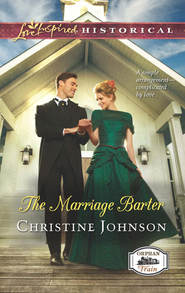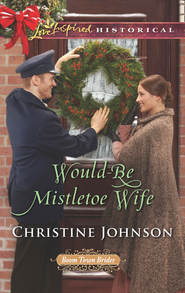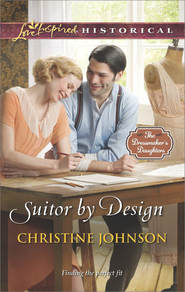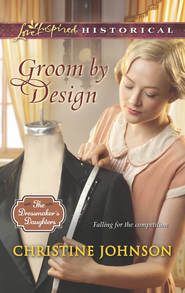По всем вопросам обращайтесь на: info@litportal.ru
(©) 2003-2024.
✖
All Roads Lead Home
Настройки чтения
Размер шрифта
Высота строк
Поля
Hendrick hurried after her. “Let me get the door.”
She’d had quite enough of his help. She was an independent, fully capable woman, not an invalid.
“I’m driving,” she stated, whipping open the driver’s-side door.
He halted, either surprised or dismayed.
She didn’t care. They’d had a deal. No romance. He’d broken it. This was the last time she’d let down her guard around Hendrick Simmons.
Didn’t she feel a thing? Hendrick watched Mariah, confused by her reaction. When he first picked her up, she’d clung to him and even laid her head against his shoulder, but then she’d tensed, as if she realized she wasn’t supposed to enjoy being carried by him. Then she got all defensive when he was just trying to help and stomped off to the car, insisting she had to drive. She didn’t even wait for him to open the door.
He would never understand women.
They ate lunch in silence and reached Chicago that afternoon. Anna hung her head out the window and gawked at the buildings.
“That one has ten stories,” Anna cried out as they entered downtown. “And that one, oh, my.” She drank in the traffic signs and policemen at the street corners, the elevated railway and the crowds of people. “Thousands must live here. How do they know each other?”
“They don’t,” Hendrick said. “Cities have lots of people, but they’re all strangers. I’d rather live where everyone knows each other.”
“Like Pearlman,” Mariah said tartly as she slowed the car for an intersection.
“What’s wrong with Pearlman?” Though he planned to move to Garden City if his interview with Curtiss went well, he rose to his hometown’s defense.
“I didn’t say anything was wrong. Pearlman’s a lovely town. Gabe adores living there.”
“It’s a good place to raise a family,” Hendrick said softly.
She visibly tensed.
So that was it. The woman who helped place orphans didn’t want children of her own. Of course. That’s what she’d tried to tell him at the bridge, that her career came first. What a shame. She’d be a wonderful mother. He’d seen her with Luke, especially, but also with Peter and the other orphans she’d placed. She was a natural parent. Maybe she didn’t want children now, but given time, was there any hope she might change her mind?
He’d test his theory. “I definitely want children.”
She hesitated long enough that he knew he’d struck a nerve. “Children are a blessing, but I’m busy with the Society. Those are the children in my life.”
“I want to wait, too,” Anna chimed in.
He’d forgotten that his sister was there or he would never have brought up such a personal subject.
“First I’m going to see the world,” Anna babbled on. “Look at these buildings. They’re monstrous. Now I can tell everyone I’ve been to Chicago. Is New York like this?”
“It is, only bigger,” Mariah said quickly, apparently eager to change the topic.
“Bigger?” Anna cried. “I want to go there.”
Mariah launched into descriptions of streets and buildings and department stores until he wished they’d be quiet.
“Do you go to parties and dances?” Anna asked Mariah.
“Some, but my college studies took most of my time.”
College. Hendrick stewed. Only the rich could afford college. Anna could never attend, so why bring it up?
“What did you study?” Anna said. “I’d do something exciting like classics and explore Greek ruins.”
He gritted his teeth. Maybe, if Curtiss offered enough for his engine design, he could afford to send her to teacher’s college, but no point in a degree for something frivolous, like classics.
“We should fill the fuel tank and get oil before leaving the city,” he said to change the topic.
Some blocks later, Mariah pulled the car into a filling station. The hulking attendant smirked when he saw Mariah in the driver’s seat. Humiliation coiled in Hendrick’s gut and spread quickly to his fists. Just because he wasn’t driving didn’t make him less of a man.
“Please fill the tank,” Mariah told the attendant, oblivious to the slight.
“Yes, ma’am.” The man spoke politely to her, but he snickered when he stepped to the fuel pump.
Hendrick sprang out of the car, unable to take any more of this. “I’ll check the oil.” He slammed the door and whipped the hood open.
“What’s wrong with you?” Mariah followed him. “The attendant can do that.”
He would not dignify her question with a reply. “You’re low a quart.”
“You don’t have to snap at me.”
She didn’t understand. For a woman who worked with people all the time, she should realize that a man needed to be a man. Instead, she always had to be in charge. He grabbed a rag from the car and wiped his hands.
“I’m a mechanic,” he stated to the smirking attendant.
Mariah followed his gaze, and her confident smile fell. “Oh, I see,” said the attendant.
Her demeanor softened, became more open, the way she’d been at the Founder’s Day picnic two years ago. That day she’d laughed and chattered and eagerly taken in every word he said. That day he’d thought she cared for him. They grew closer and closer over the following months until the day of Felicity and Gabriel’s wedding. Then suddenly, a wall went up between them and she only wanted to be friends.
Apparently, that’s all she’d ever want.
He reached for the passenger-side door, but she stopped him with an electric touch to the arm.
“Thank you, Hendrick, for letting me practice driving, but I think you’d better take over now.”
The knot in his gut loosened when he spotted the attendant and realized she’d said that for his sake. Maybe, somewhere deep, deep inside, she still cared for him.
She rummaged in her bag and shoved a roll of bills into his hand. He stared at the thick wad. It must total fifty dollars.
“Take it,” she whispered as the attendant approached.
He didn’t have time to protest.
“That’s $1.40.” The burly attendant looked from him to Mariah.
She smiled and returned to the passenger seat.











